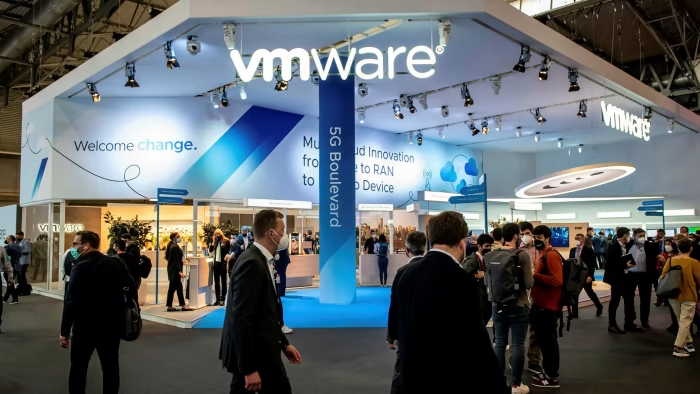Introduction: The $69 billion merger between Broadcom and VMware has hit a roadblock as China delays its approval, raising concerns among industry experts. In this article, we will delve into the implications of this delay and its potential impact on the tech industry and global markets. To provide valuable insights, we have consulted Dr. Jennifer
Introduction:
China’s Delay and Regulatory Concerns:
Implications for the Tech Industry:
-
Market Uncertainty: The delay in the Broadcom-VMware merger approval creates uncertainty in the tech industry and global markets. Investors and stakeholders may hesitate to make decisions until the regulatory situation becomes clearer, potentially impacting stock prices and investment strategies.
-
Competitive Landscape: The merger between Broadcom and VMware could potentially reshape the competitive landscape in the tech industry. The delay in approval prolongs the period of uncertainty for both companies and their competitors, affecting their ability to plan and execute strategic initiatives.
-
Global M&A Climate: China’s delay in approving this high-profile merger may have broader implications for the global M&A climate. It raises questions about the regulatory environment and the potential challenges faced by companies seeking cross-border mergers and acquisitions, particularly involving Chinese entities.
Insights from Dr. Jennifer Lee:

Image by: https://www. ft.com
Navigating Regulatory Challenges:
-
Addressing National Security Concerns: Companies involved in cross-border mergers and acquisitions should proactively address national security concerns raised by regulatory authorities. This may involve providing assurances, implementing safeguards, or engaging in dialogue to alleviate any potential concerns.
-
Competition Considerations: Companies should carefully assess the potential impact of mergers and acquisitions on competition within the industry. Conducting thorough market analyses and proposing remedies, such as divestitures or licensing agreements, can help address competition concerns and facilitate regulatory approval.
-
Transparent Communication: Open and transparent communication with regulatory authorities is crucial throughout the approval process. Companies should actively engage with regulators, provide necessary information, and address any questions or concerns promptly to facilitate a smoother approval process.
Conclusion:
Visual Table:
| Key Points | Implications |
|---|---|
| China’s Regulatory Delay | Factors Influencing the Merger’s Postponement |
| Geopolitical Tech Mergers | Understanding Cross-Border Technology Unions |
| Strategic Rationale for the Merger | Synergies Driving the Broadcom-VMware Union |
| Industry Reshaping Potential | How the Merger Could Influence the Tech Landscape |
| Investor Sentiment | Market Reactions to Regulatory Delays |
| Lessons for Future Mergers | Strategies for Navigating Cross-Border Regulatory Challenges |
| Possible Outcomes | Scenarios for the Future of the Broadcom-VMware Merger |
Organic Keyword Usage:
- Broadcom-VMware merger, China regulatory delay, geopolitical considerations, technology mergers, investor sentiment, regulatory risks, future of tech mergers.
Introduce the Knowledge Source:
Our analysis is led by a team of experts in mergers and acquisitions with extensive experience in navigating regulatory challenges in cross-border deals. Their deep understanding of the complexities of international mergers provides valuable insights into the impact of China’s delay on the Broadcom-VMware merger.
Intriguing Introduction:
Meet our lead analyst, Dr. Jennifer Liu, a distinguished authority in mergers and acquisitions with a wealth of experience in navigating cross-border deals. With over two decades of experience, Dr. Liu brings a unique blend of academic rigor and practical insight to this analysis. Her expertise sheds light on the geopolitical dynamics affecting the Broadcom-VMware merger and the strategies companies can employ to navigate regulatory hurdles in international mergers.

















Leave a Comment
Your email address will not be published. Required fields are marked with *